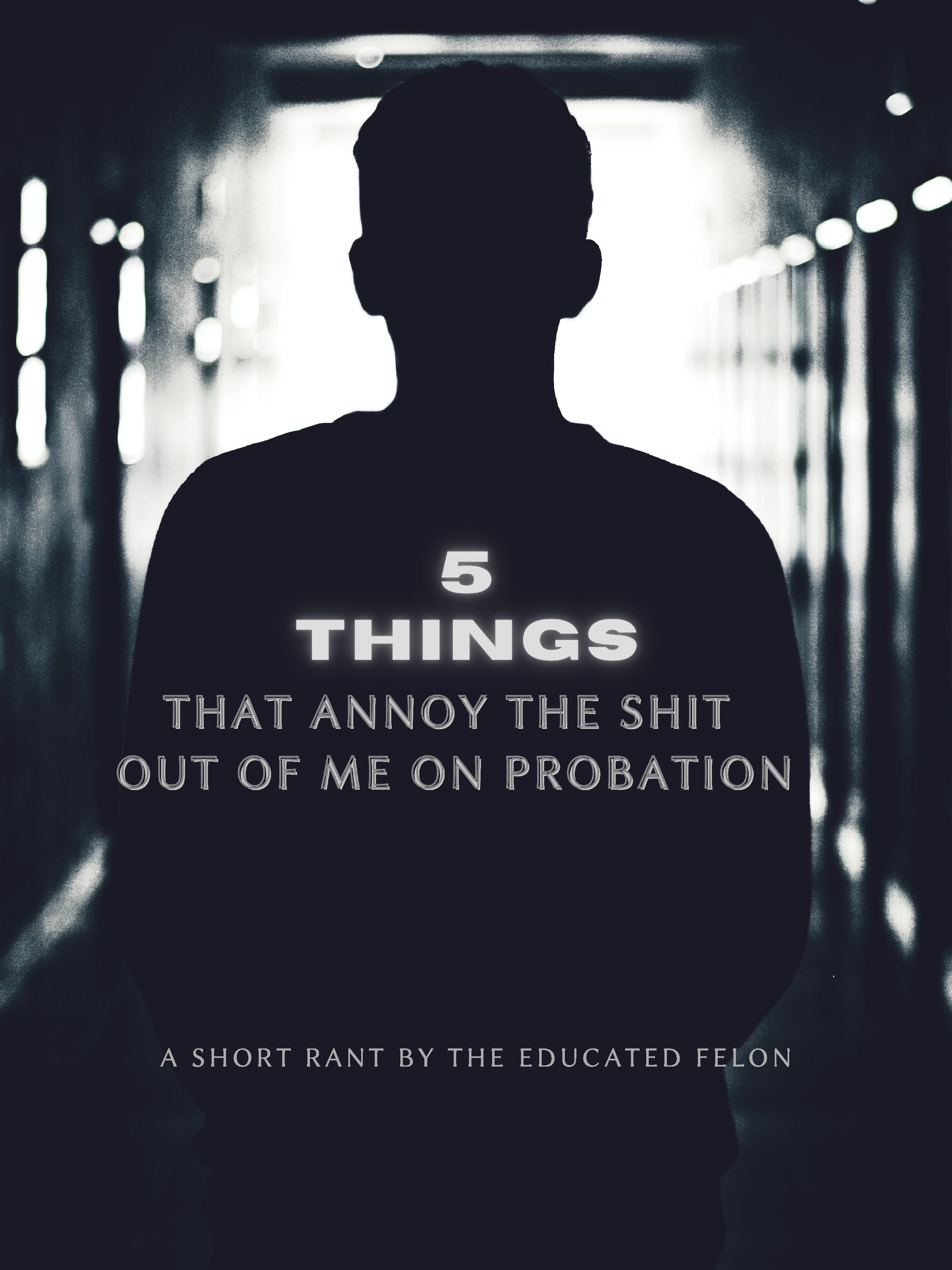How to Address Conflicts with Your Probation Officer (Best Possible Ways)
Introduction
Navigating the probation system can feel like trying to salsa dance through a minefield – one wrong move, and boom! You’re in hot water. At the heart of this delicate dance is your relationship with your probation officer in the criminal justice system. This crucial connection can make the difference between smooth sailing and choppy waters during your probation.
Conflicts with your probation officer are about as fun as a root canal without anesthesia, but they’re very common. The key is handling these disagreements with your probation officer professionally, which can be trickier than trying to eat soup with a fork.
Fear not though, as this guide will equip you with the tools to navigate the choppy waters of community supervision with the grace of a swan.
Whether you’re dealing with miscommunications, disagreements over probation terms, or just plain personality clashes, we’ve got you covered. Buckle up, we’re about to embark on a journey through the land of playing peacemaker, probation-style!
Table of Contents
- The Probation Tango: Understanding Your Probation Officers Work
- Communication is Key (Not Just Bullshit)
- When Things Go South: Identifying Conflict Triggers
- Keeping Your Cool: The Art of Not Losing Your Composure
- The Professional Approach: Steps to Address Conflicts
- Document, Document, Document
- Know Your Rights (and Lefts)
- When All Else Fails: Conflict Escalation Options
- Real-Life Examples: When Probation Gets Real
- Questions and Answers: Your Burning Questions Answered
- Conclusion: Wrapping It Up with a Bow
The Probation Tango: Understanding Your Probation Officers Work
Before we dive into conflict resolution, it’s crucial to understand your probation officers role. Think of your Probation Officer as a strange hybrid of a coach, a referee, and your mother who always knows when you’re up to no good.
Your Probation Officers primary responsibilities include:
- Supervise defendants in the legal system
- Monitor your compliance with probation and parole terms
- Helping you access resources and training programs for rehabilitation and avoid incarceration
- Reporting your progress (or lack thereof) to the court
Remember, probation officers aren’t your enemy – they’re more like a very strict dance partner in the probation tango. Understanding their role can help you avoid stepping on their toes… metaphorically speaking.
Communication is Key (Not Just Bullshit)
Clear communication is the foundation of any good relationship, including the one with your Probation Officer. Here are some tips to keep the lines of communication as open as a 24-hour Denny’s:
- Be honest: Lying to probation officers is about as smart as trying to hide an elephant in your living room.
- Be proactive: If you’re facing challenges, speak up before they become major problems.
- Listen actively: Pay attention to what probation officers are saying, even if it’s not what you want to hear.
- Ask questions: If something’s unclear, ask. Most probation officers aren’t mind readers (thank god).
Remember, good communication can prevent many conflicts and avoid the risk of additional stress during probation. It’s like using bug spray before a camping trip – a little prevention goes a long way.
When Things Go South: Identifying Conflict Triggers
Despite your best efforts, conflicts may still arise and evoke a probation officer argument. Common triggers include:
- Misunderstandings about probation terms
- Missed appointments or failed drug testing
- Disagreements over treatment programs or community service
- Personality clashes (as most probation officers play by a different set of rules)
Identifying these triggers can help you address issues before they escalate into full-blown conflicts.
Keeping Your Cool: The Art of Not Losing Your Composure
When conflicts arise, keeping your cool is more important than a freezer at an ice cream shop. Here are some strategies:
- Take a deep breath: Oxygen is your friend. Use it.
- Count to ten: Or twenty. Or recite the alphabet backward if you need to.
- Remember the bigger picture: This too shall pass. Eventually.
- Use “I” statements: “I feel frustrated when…” sounds a lot better than “You’re being a jerk!”
Staying calm and professional can diffuse tense situations faster than you can say “probation violation.” Plus, it makes you look mature and responsible, which never hurts when dealing with government agencies (just saying).
The Professional Approach: Steps to Address Conflicts
When addressing conflicts with probation officers, follow these steps:
- Schedule a meeting: Don’t ambush your probation officer like a surprise birthday party gone wrong.
- Prepare your thoughts: Organize your concerns clearly and concisely.
- Present your side calmly: Stick to the facts.
- Listen to their (probation officers) perspective: There are always two sides to a story (sometimes three, if you count the truth).
- Work together on solutions: Collaboration is key. You’re not enemies; you’re problem-solving business partners (check out this other article for some much needed help).
- Follow up: Ensure you both understand the agreed-upon resolution.
Remember, addressing conflicts professionally shows maturity and commitment to your responsibilities and rehabilitation. It’s like wearing a suit to a job interview – it makes a good impression.
Document, Document, Document
Keeping records is more important than a squirrel’s nut stash in the winter. Keep record of everything to cover yourself and reduce the risk of a probation violation. Document…
- All meetings, phone calls, and visits with your Probation Officer
- Any conflicts or disagreements that arise
- Steps taken to resolve issues
- Outcomes of conflict resolution attempts
This documentation can be crucial if the need arises to investigate any allegations later. Plus, it helps you keep track of your progress, like a very official diary.
Know Your Rights (and Lefts)
Understanding your rights as a probationer in the criminal justice system is as important as knowing the rules of a game of Monopoly – it prevents a lot of arguments with probation officers down the line. Key rights and duties include:
- The right to be treated fairly and without discrimination
- The right to due process for probation violations
- The right to appeal certain decisions
Knowing your rights doesn’t mean you should wave them around like a flag at every opportunity. However, understanding them can help you navigate conflicts more effectively.
When All Else Fails: Conflict Escalation Options
If you’ve tried everything and still can’t resolve conflicts with your Probation Officer, you may need to escalate the issue. Options include:
- Speaking with the Probation Officers supervisor
- Contacting the probation department and filing a formal grievance (complaint) with the circuit administrator.
- Consulting with your attorney and receiving counsel on the situation.
Remember, escalation should be a last resort, not your go-to move. It’s like using the fire extinguisher – necessary in emergencies, but not for everyday cooking mishaps.
Real-Life Examples: When Probation Gets Real
Face it, probation isn’t just a walk in the park – To help you navigate this terrain, let’s explore some real-life scenarios that might make you feel like you’re starring in your probation reality show, along with some practical solutions that don’t involve bribing the producer.
Example 1: The Case of the Conflicting Schedule
Situation: You’ve just landed a new job (congrats), but the hours conflict with your regular check-in times. Your Probation Officer seems about as flexible as a steel beam, insisting you make it work or risk a probation violation and go to jail.
Possible Remedy:
- Document your new work schedule in writing.
- Request a meeting with your Probation Officer to discuss and remedy the situation.
- Come prepared with alternative check-in time proposals.
- If needed, ask your employer for a letter confirming your work hours and duties.
- Suggest alternative check-in methods, like phone calls, and video chats for times when in-person meetings are impossible.
Remember, showing initiative in problem-solving can go a long way. Probation Officers want to see you succeed in employment and balance responsibilities, not juggling flaming torches to make impossible schedules work.
Example 2: The Drug Test Dilemma
Situation: You’ve been prescribed a new medication, and suddenly your drug testing comes back positive. Your Probation officer is giving you the stink eye, and you’re sweating more than a snowman in summer.
Possible Remedy:
- Immediately inform your Probation Officer about any new prescriptions before taking a drug test (before receiving a probation violation for illegal drugs in your system).
- Bring a copy of your prescription and a doctor’s note to your next meeting.
- Offer to provide a list of all medications you’re taking.
- Request a retest if you believe the result is due to your prescription medication.
- Consider asking your doctor if there are alternative medications that won’t affect your drug tests and risk you violating probation.
Transparency is key here. Keeping Probation Officers in the loop about your medical situation can prevent misunderstandings faster than you can say “false positive.”
Example 3: The Community Service Conundrum
Situation: You’re struggling to complete your community service hours due to transportation issues. Your probation officer seems to think you’re making excuses, and the tension is mounting.
Possible Remedy:
- Explain your transportation issues in significantly broader detail to your probation officer.
- Research and propose alternative community service options closer to your home or workplace.
- Look into public transportation routes or ride-sharing options and present a plan to your Probation officer.
- Ask if there are any virtual or from-home community corrections options available.
- Consider reaching out to friends, family members, or community organizations for transportation assistance.
Show your probation officer that you’re not just sitting on your hands – and you’re actively trying to solve the problem. It’s like being a detective in the case of your own rehabilitation and responsibilities.
Example 4: The Misunderstanding Muddle
Situation: You thought you had permission to travel out of state for a family member emergency, but now your probation officer is saying you violated your supervision terms and duties.
Possible Remedy:
- Stay calm – panicking is not helpful.
- Investigate and gather any evidence of the communication where you thought permission was granted (emails, texts, etc.).
- Write down a clear timeline of events and communications.
- Request a meeting with your PO to discuss the misunderstanding.
- If you genuinely misunderstood, take responsibility and propose steps to ensure clearer communication in the future.
- If necessary, request a formal hearing to present your side of the story.
Clear communication is like a good deodorant – it prevents a lot of unpleasant situations. Make sure you always get special permissions in writing to avoid future misunderstandings when on probation and parole.
Example 5: The Treatment Program Tussle
Situation: Your probation officer is insisting you attend a specific substance abuse program that you feel isn’t suitable for your needs. You’re butting heads as a result of this demand placed on you, with the looming threat of incarceration.
Possible Remedy:
- Do your research – come prepared with information about why the substance abuse program isn’t suitable and alternative services that might be a better fit.
- Share any assessments or recommendations from mental health professionals or addiction specialists.
- Propose a trial period for an alternative program and services, with regular check-ins to assess progress.
- If applicable, discuss any logistical challenges (like location or timing) that make the suggested program difficult to attend.
- Offer to get a second opinion from another professional in the field.
Remember, in the criminal justice system, probation officers are not merely supervisors, but court officials who want your rehabilitation to be successful.
By showing that you’re engaged in the process and have given it serious thought, you’re more likely to find a solution that works for both of you, thus avoiding unnecessary conflict and battles.
The Bottom Line on Real-Life Probation Challenges
These scenarios of the criminal justice system might sound familiar, or you might be facing your own unique “probation conflict.” Whatever the case, the key is to approach the situation professionally, come prepared with the best solutions, and keep the lines of communication open.
Remember, probation officers have seen it all – from the dog-ate-my-ankle-monitor excuse to the my-evil-twin-violated-my-probation story.
Being honest, proactive, and solution-oriented sets you apart from the other bozos and shows you’re serious about completing your community corrections duties.
Think of each challenge as a pop quiz in the School of Life Skills. With each problem you solve professionally, you’re not just avoiding violations while on probation and parole – but building valuable skills for your post-supervision life (and avoiding being an offender in front of the judge in a court room).
Questions and Answers: Your Burning Questions Answered
Q: Can I request a new probation officer if we don’t get along?
A: It’s possible, but not guaranteed. You’ll need to demonstrate valid reasons for the request, like consistent unprofessional behavior or discrimination. (You also may want to check out this article)
Q: What if my PO is always late or cancels appointments?
A: Document these instances and bring them up professionally. If it continues, consider discussing it with their supervisor.
Q: My PO seems to have it out for me. What can I do?
A: First, ensure you’re meeting all your probation requirements and duties. If you are and still feel unfairly treated (or worse, that the law is being broken and you are being discriminated against), document specific instances and consider escalating the issue. You may need a court order and appear in front of a judge. I would strongly urge you to seek counsel from a legal professional before going that route.
Q: Can probation officers change my probation terms?
A: Generally, only a judge can modify probation terms. If your PO suggests changes, clarify whether it’s a formal modification or just a suggestion.
Q: What if I disagree with a drug test result?
A: Request a retest immediately. If the issue persists, consult with your attorney about your options.
Conclusion: Wrapping It Up with a Bow
Navigating conflicts with probation officers doesn’t have to be as painful as a paper cut on your tongue. By understanding a probation officers role, communicating effectively, addressing issues professionally, and knowing your rights, you can turn potential conflicts into opportunities for growth and understanding.
Remember, your relationship with your PO is a key factor in completing your probation. It may not always be smooth sailing, but with the right approach, you can navigate the waters like a pro.
Stay cool, stay professional, and keep your composure – this too shall pass at some point in time (sooner than later). Before you know it, you’ll be graduating from community supervision ready to take on the world… legally, of course.







